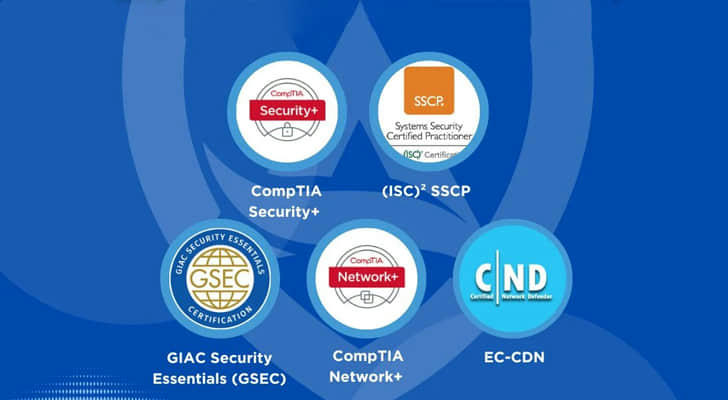The 5 Most Promising International Certifications Over the Next Three Years

As globalization and digital transformation continue to reshape the workforce, internationally recognized professional certifications have become increasingly valuable. Compared to local qualifications, global certifications are more widely accepted across different regions and industries. They serve as a strong indicator of professional capability and can significantly enhance cross-border career opportunities.
Among the many international credentials available, the following five certifications are widely regarded by industry professionals as having the greatest growth potential over the next three years. They cater to various fields, experience levels, and career goals.
1. PMP® – Project Management Professional
Applicable Sectors: IT, engineering, finance, construction, manufacturing, healthcare, and more.
Overview: Issued by the Project Management Institute (PMI), the PMP® is one of the most recognized project management certifications worldwide. It focuses on key competencies such as planning, execution, resource coordination, scheduling, cost control, and risk management.
Why It’s Worth Pursuing: Project-based work has become the norm across industries. Organizations are placing increasing emphasis on professionals who can manage complexity, timelines, and teams effectively. A PMP-certified individual demonstrates a comprehensive understanding of project management principles, making them valuable in global or large-scale projects.
Case Example: A technical consultant transitioned from a support role to a cross-functional project coordinator after earning the PMP certification. The structured project knowledge helped them manage timelines and stakeholders more efficiently, leading to greater responsibilities in future initiatives.
2. CFA® – Chartered Financial Analyst
Applicable Sectors: Banking, investment, asset management, insurance, and financial advisory.
Overview: The CFA® credential, awarded by the CFA Institute, is one of the most prestigious certifications in finance. It covers investment analysis, portfolio management, economics, ethics, and financial reporting.
Why It’s Worth Pursuing: As the financial sector becomes increasingly data-driven and regulated, the demand for professionals with deep analytical and risk management skills continues to rise. The CFA designation is often a prerequisite in multinational finance roles and is well-regarded by employers worldwide.
Case Example: A junior analyst with Level 1 CFA passed was invited to join a global asset management firm’s rotation program. The certification background helped the candidate stand out in resume screening and gain access to international training resources.

3. AWS Certified Solutions Architect – Associate
Applicable Sectors: Cloud computing, IT infrastructure, DevOps, software engineering, and system integration.
Overview: Issued by Amazon Web Services (AWS), this certification validates the ability to design and deploy scalable cloud systems. It focuses on core services, architecture best practices, and optimization strategies.
Why It’s Worth Pursuing: Cloud infrastructure has become foundational to digital transformation across industries. With AWS leading the market, professionals with certified knowledge of cloud architecture are in demand globally. The certification is particularly relevant for those seeking roles in digital transformation or infrastructure modernization.
Case Example: An IT support engineer obtained this certification and transitioned into a cloud operations role. Over time, they contributed to multiple migration projects and gained exposure to cloud security and cost optimization, eventually moving toward a senior consultancy track.
4. ACCA – Association of Chartered Certified Accountants
Applicable Sectors: Accounting, auditing, finance, compliance, taxation, and corporate governance.
Overview: ACCA is a UK-based accounting certification with global reach. It covers a broad spectrum of subjects, including financial management, audit and assurance, business strategy, and regulatory frameworks.
Why It’s Worth Pursuing: In an era of increasing cross-border transactions and compliance requirements, companies need finance professionals who understand international standards. ACCA members are often seen as adaptable and equipped for roles requiring both technical and strategic financial skills.
Case Example: A finance assistant who completed the foundational ACCA levels was offered a position in the internal compliance team. The qualification helped the candidate support audit coordination and internal control tasks across departments.
5. TEFL – Teaching English as a Foreign Language
Applicable Sectors: Education, international schools, online teaching, language training, and curriculum design.
Overview: TEFL is a foundational certification for teaching English in non-native English-speaking countries. It includes modules on instructional techniques, lesson planning, classroom management, and intercultural communication.
Why It’s Worth Pursuing: The demand for English education remains high globally, particularly in online and hybrid formats. TEFL-certified educators have access to a growing number of flexible teaching opportunities, both on-site and remote, across various age groups and educational platforms.
Case Example: A language major obtained a TEFL certificate and joined an international online teaching platform. They taught students from various countries and later contributed to content development and new-teacher training programs.

How to Choose the Right Certification
Although each of these certifications holds strong global recognition, it’s important to assess which best aligns with one’s professional background and goals:
Industry relevance: Ensure the certification aligns with current or desired career paths.
Updated curriculum: Look for programs that evolve with industry trends.
Practical application: Choose certifications with real-world scenarios or project-based components.
Long-term potential: Research career trajectories of certificate holders over a 3–5 year span.
Final Thoughts
Certifications are not a one-size-fits-all solution, but they do serve as powerful validation of skills and commitment to professional growth. In a fast-changing global job market, the right certification can unlock new roles, enhance credibility, and increase cross-border mobility.
Over the next three years, investing in a globally recognized credential can serve as a strategic move for professionals aiming to stay competitive, agile, and future-ready.
